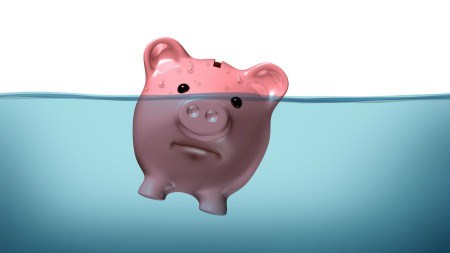Using a credit card is all well and good until bad habits creep in. Make sure to avoid these common mistakes that will negatively impact your financial health.
Many people end up getting credit cards in the hopes of improving their credit rating, however it often ends up having the opposite effect. A bad credit rating can result in difficulty applying for a home loan from banks and other lending institutions.
These are some common mistakes that you should avoid, and tips on how to make sure that you don’t develop bad credit habits:
1. Having a high balance:
Racking up a high credit card balance can be detrimental to your credit score, even if you’re paying off your monthly credit card bills in full. A contributing factor to your credit score is the amounts that are owed, along with account utilisation. So it is best not to owe massive amounts on your credit card.
2. Making late payments:
Your payment history contributes a great deal to your total credit score and just one missed credit card payment can be damaging. For this reason, it is in your best interest to make sure that your credit card balance is paid in full and on time. It’s a good idea to set up reminders either on your email or your mobile phone.
3. Not checking credit report:
Keeping tabs on your credit record is vital, to make sure you know where you stand. Often, people forget to check their credit record for years, only to find that they have landed up with a bad credit rating. Check your credit report once a year, and make sure that there are no errors. It’s free and you can get it from your credit reporting bureau.
4. Multiple credit cards:
Opening a few credit cards at the same time is not advisable. Every time you apply for a credit card, it sets off an inquiry on your credit rating and this affects your credit score. Aim to have a limited number of credit cards, and try not to open new ones once that limit is reached.
5. Not having a credit card account:
Avoiding credit cards altogether is a great way to stay out of debt, however it could also hinder you when you’re applying for a home loan or car finance. Credit cards, when managed responsibly, are a way to build up your credit record and show long-term commitment to any future lending institutions that you may deal with.
6. Having a large credit balance from month to month:
Many people only pay the minimum amount owed on their credit card, by the due date. However, this is not a good idea as interest is earned on the remaining amount, and your credit score is negatively impacted. It is best to pay off your credit card in full each month.
7. Not shopping around:
Consider different options to ensure that you have the best credit card that fits your lifestyle and your spending habits. Rather than applying for the wrong kind of card and getting rejected, or having to cancel the card. Either of these options will negatively impact your credit score.
8. Closing a credit card:
A common belief is that closing your credit card, once you’ve finished paying it off, is the best course of action. On the contrary, the longer your credit card stays open, the better. As long as it’s being paid off every month, it will show that you are capable of long-term financial commitments.
9. Taking cash advances:
Taking cash out of your credit card at the beginning of a month is a common mistake. By the end of the month, people often can’t pay back the advance, and this leaves them in an even worse situation than they were in the first place. Try not to take advances at any point.
10. Giving up:
People with a bad crediting rating can feel the urge to give up, and don’t bother trying to improve it. However, credit health is something that can often be earned back over time, and it is worth consulting a financial planner on taking steps (even small ones) to rebuild your credit record.



